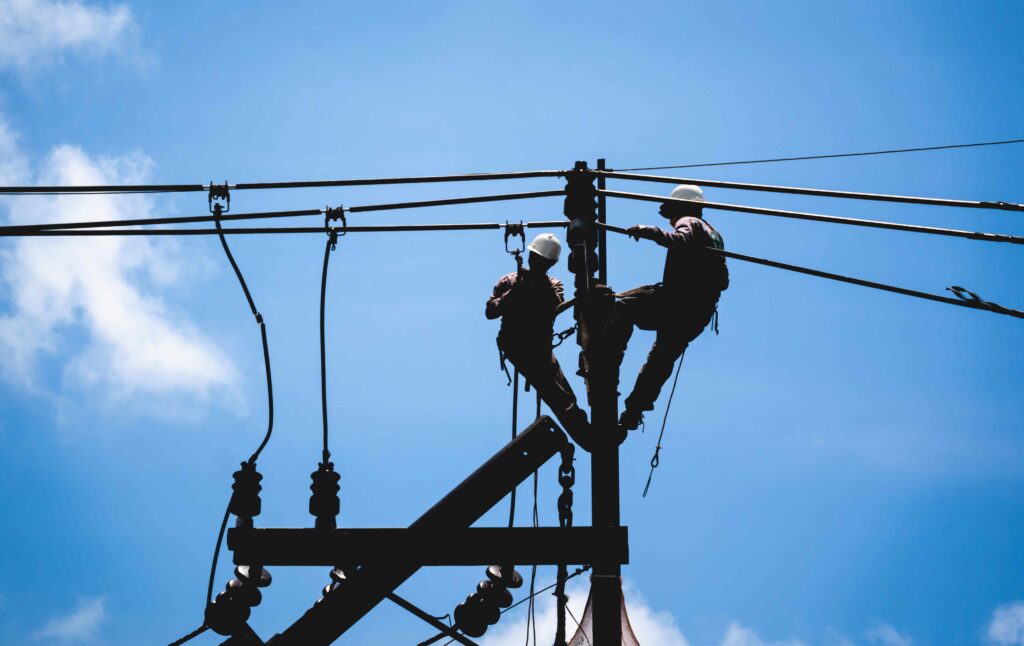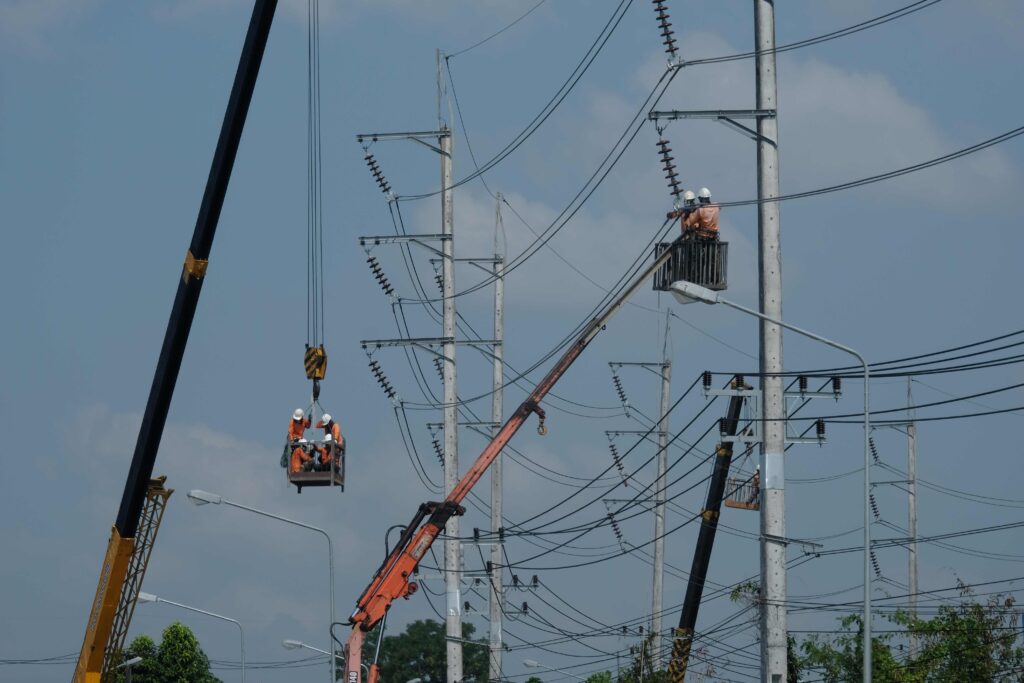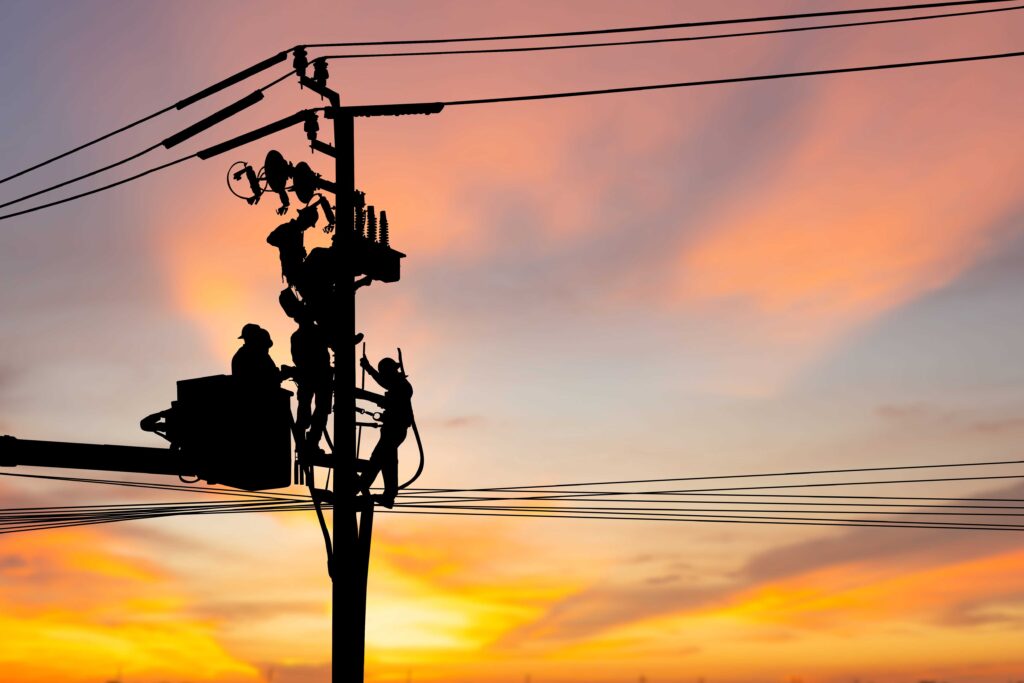A lineman is a skilled tradesperson who installs and maintains electrical power and telecommunications systems. Linemen work on high-voltage lines and equipment, ensuring the transmission of electricity and communication signals.
In the world of essential services, few roles are as pivotal as that of a lineman. These professionals dedicate themselves to the construction and maintenance of the network infrastructure that powers our daily lives. From towering transmission towers to intricate local circuits, linemen are the backbone of power and communication lines.
Their expertise is not just about keeping the lights on; they are responsible for rapid response during outages and natural disasters, repairing damaged lines to restore vital connections. Commitment to safety is paramount in this career, as they often work at great heights and under hazardous conditions. This demanding job requires a blend of physical strength, technical knowledge, and problem-solving skills, making linemen unsung heroes in their communities.
Types Of Linemen
Within the world of electrical work, linemen stand as the valiant workhorses, responsible for the construction and maintenance of electrical power systems. They come in several ranks, each with increasing levels of skill and responsibility. Let’s explore the various types of linemen that keep our lights on and our homes buzzing with energy.
Apprentice Lineman
An apprentice lineman is where the journey into the electrical high-wire act begins. Under close supervision, apprentices learn the ropes—literally and figuratively—of electrical line work. Some of their core tasks include:
- Assisting in installation and repair of cables
- Learning safety protocols
- Gradually working on higher voltage lines
Prospective apprentices often enroll in specialized training programs. These programs combine classroom learning with hands-on experiences.

Journeyman Lineman
A journeyman lineman takes a step up the ladder after several years as an apprentice. At this level, linemen have a deeper body of knowledge. They are skilled to work independently on more complex tasks. Key responsibilities include:
- Performing tasks without direct supervision
- Operating equipment like bucket trucks and digger derricks
- Mentoring apprentice linemen
A journeyman reaches this stage after proving their skills through exams and through their on-the-job performance.

Master Lineman
The master lineman stands at the pinnacle of the profession. This status is reserved for those with substantial experience and expertise. Master linemen take charge of major projects and ensure the highest standards are met. Their expertise covers:
- Leading large-scale power line installations
- Overseeing safety and compliance
- Directing teams of journeymen and apprentices
Becoming a master lineman involves a long-term commitment to education, training, and fieldwork, setting them apart as leaders in the field.
Frequently Asked Questions For What Is A Lineman
What Exactly Does A Lineman Do?
A lineman, also known as an electrical power-line technician, installs, maintains, and repairs overhead and underground electrical power lines and systems. They ensure the reliable delivery of electricity to homes and businesses.
What Is The Highest Paying Lineman Job?
The highest paying lineman job is typically found in the electrical power industry, specifically for experienced linemen working for major utilities or in areas with high demand for skilled workers.
Do Lineman Make 6 Figures?
Some linemen, depending on their experience, location, and overtime hours, can earn six-figure salaries. Factors such as working for major utility companies or in high-demand areas may increase their earnings potential.
What Is The Difference Between A Lineman And An Electrician?
A lineman works on electrical power systems, dealing with high-voltage lines primarily outside, while an electrician typically handles lower-voltage systems inside buildings. Linemen focus on transmission and distribution, whereas electricians install and maintain residential, commercial, and industrial electrical systems.
Conclusion
Understanding the role of a lineman illuminates the unseen efforts powering our daily lives. These highly trained individuals ensure our electrical and communication infrastructures remain robust and reliable. If you’ve ever wondered about the unsung heroes behind your switch flips and internet connections, remember the lineman.
Their expertise keeps the modern world brightly lit and constantly connected.

